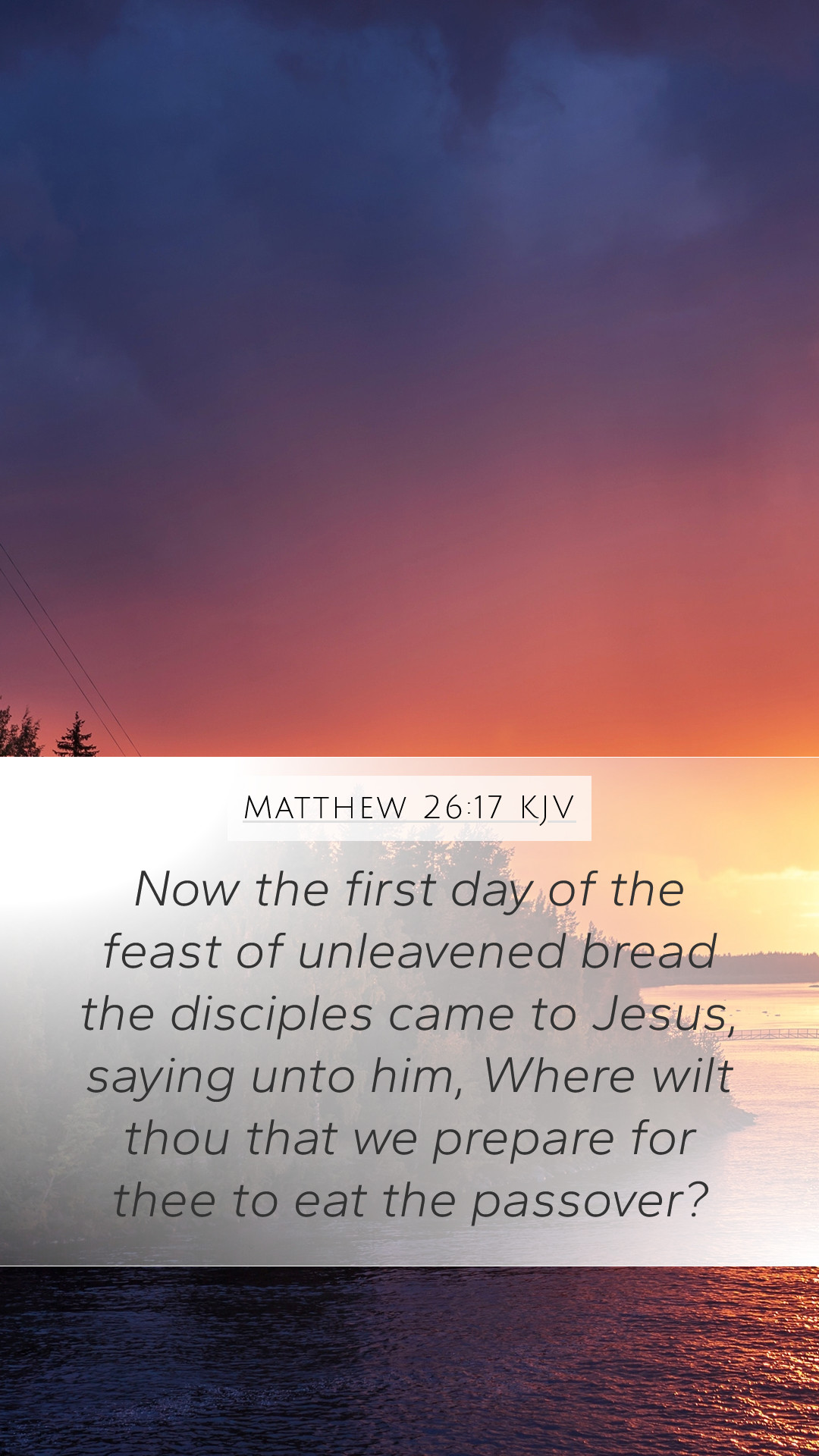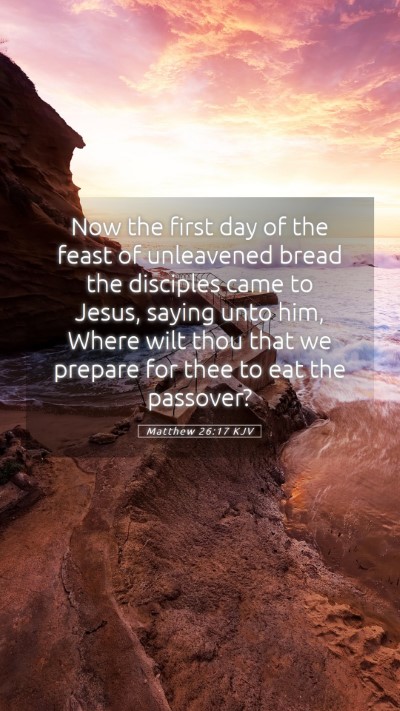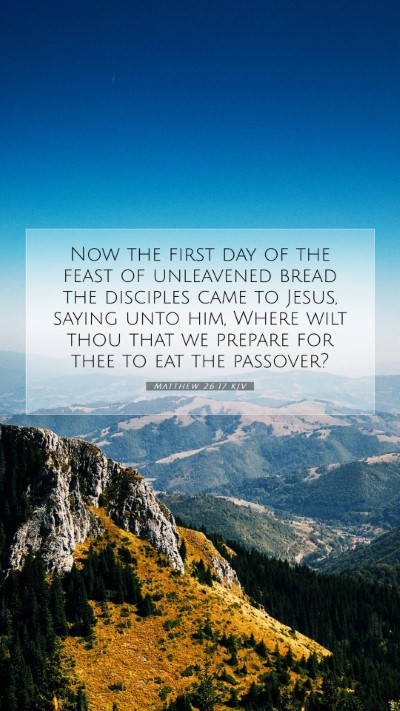Bible Verse Meaning and Commentary: Matthew 26:17
Verse: Matthew 26:17 - "Now the first day of the feast of unleavened bread, the disciples came to Jesus, saying unto him, Where wilt thou that we prepare for thee to eat the passover?"
Understanding the Context
This verse occurs during a significant time in the Christian liturgical calendar, specifically the Passover, which underscores the Jewish heritage and the connection to Jesus' mission. The feast of unleavened bread immediately follows Passover and celebrates the Israelites' exodus from Egypt. This setup forms the backdrop for understanding the gravity of the events that are about to unfold.
Bible Verse Interpretations
According to Matthew Henry, this verse highlights the obedience and readiness of the disciples to serve. Their inquiry into the preparations for the Passover signifies their commitment to following Jesus and participating in the sacred traditions of their faith. Henry notes that this moment emphasizes the importance of the Passover meal as a precursor to the Last Supper, wherein Jesus would establish the new covenant.
Albert Barnes expounds further on the significance of the Passover in the Jewish culture, explaining that the act of preparation is laden with meaning. He posits that the disciples' question indicates their desire to honor Jesus, recognizing Him as the central figure of their faith. The Passover, as an integral Jewish festival, symbolizes deliverance and redemption, themes that permeate Jesus’ teaching and actions.
Adam Clarke provides insights into the logistics of the preparation. His commentary highlights that Jesus’ instructions about where to prepare the meal demonstrate His authority and foreknowledge. Clarke also notes that this implies Jesus is actively orchestrating the events leading to His crucifixion, hinting at His divine nature and the unfolding of God’s salvific plan.
Spiritual Significance and Application
Matthew 26:17 serves as a pivotal moment that illustrates the transition from the old covenant to the new. The disciples' question carries layers of theological significance, inviting believers to reflect on their readiness to follow Christ and serve Him. Moreover, this passage challenges individuals and Bible study groups to explore their understanding of tradition versus the new teachings brought forth by Jesus.
This verse also lays the groundwork for deeper biblical exegesis. It encourages readers to examine how the elements of the Jewish Passover transition into the celebration of the Eucharist in Christian practice. The preparation required by the disciples mirrors the preparation of the heart that believers are called to undertake before participating in communion.
Related Bible Cross References
- Exodus 12:1-14: The original Passover instructions given to Moses.
- Luke 22:8: Details on the preparation of the Passover meal by the disciples.
- John 13:1-15: The Last Supper, including Jesus washing the disciples' feet, illustrating service.
- Matthew 26:26-29: The establishment of the Lord's Supper.
- 1 Corinthians 11:23-26: Paul's teaching on the Eucharist.
Conclusion
In summarizing Matthew 26:17, it is vital to recognize its place in the broader narrative of the Gospel. The verse invites reflection on the meaning of Bible verses, particularly those that pertain to significant events like the Last Supper, and encourages readers to explore the deeper implications of Jesus' teachings and actions within their own lives. As believers engage in online Bible study or group discussions, this verse can serve as a rich topic for understanding Scripture and applying its lessons to contemporary faith practice.
Keywords: Bible verse meanings, Bible verse interpretations, Bible verse understanding, Bible verse explanations, Bible verse commentary, scripture analysis, biblical exegesis, Bible study insights, meaning of Bible verses, understanding Scripture.


